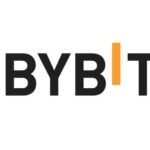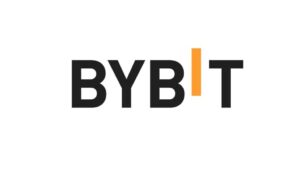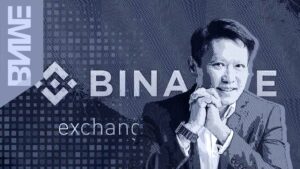Blockchain’s Institutional Adoption Grows with Key Financial Players
Institutional investors have been less interested in Bitcoin and more interested in blockchain technology over time. Leading this battle is JPMorgan Chase, whose CEO, Jamie Dimon—a prominent opponent of Bitcoin—openly admits the bank uses blockchain extensively. Speaking at the Financial Markets Quality Conference, Dimon emphasised how blockchain is a key component of JPMorgan’s technical breakthroughs and how it is changing the bank’s business procedures. Blockchain is fundamentally a sophisticated database, but its uses in the financial markets are becoming more and more well-known.
Dimon Would Rather Use AI Than Blockchain
Dimon has stated that, when comparing the two revolutionary technologies, he prefers artificial intelligence (AI) to blockchain. Blockchain has been discussed for more than ten years, but its immediate impact has been little. Dimon believes that artificial intelligence (AI) has a greater potential to completely transform sectors. He still believes that Bitcoin is worthless, thus his stance on the matter hasn’t changed. Dimon did highlight the potential of blockchain technology, pointing out that it offers useful capabilities for data sharing and fostering customer trust.
Onyx: How Transactions Are Revolutionised by JPMorgan’s Blockchain Network
Onyx Network at JPMorgan: A Blockchain Success Story
The creation of Onyx, a private blockchain network based on an Ethereum split, is a prime example of JPMorgan’s blockchain journey. Peer-to-peer lending, cross-border payments, and wholesale payment transactions are all intended uses for Onyx. Because of Onyx’s effective and safe payment solutions, well-known financial organisations including Goldman Sachs, DBS Bank, and BNP Paribas have embraced the platform. The network has handled over $700 billion worth of transactions since its inception, demonstrating the growing significance of blockchain in institutional finance.
Blockchain as a Financial Efficiency Instrument
Even while Dimon still criticises cryptocurrencies, JPMorgan’s use of blockchain demonstrates a more sophisticated grasp of its possibilities. The bank has been able to increase productivity, particularly in cross-border lending and payments, by creating a safe and efficient platform for international transactions thanks to Onyx. JPMorgan’s use of blockchain technology demonstrates how organisations might use it to lower risks and operational inefficiencies in conventional finance.
The Accelerated Adoption of Blockchain by Institutions
Financial Institutions’ Broad Adoption of Blockchain Technology
Previously dubious about blockchain, the institutional financial sector is now actively incorporating the technology. Major financial institutions that oversee over $130 trillion in assets have started implementing digital finance solutions like stablecoins and Central Bank Digital Currencies (CBDCs), according to the Institutional Digital Finance Adoption Report by Blockchain Coinvestors. A major change in the financial landscape is shown by the fact that more than half of these companies are currently investigating blockchain-based solutions.
Blockchain: The Foundation of the Financial System of the Future
Blockchain Coinvestors’ managing partner, Matthew Le Merle, stressed that blockchain technology will be at the forefront of the next financial system. Leading blockchain adoption institutions have the potential to completely alter efficiency, security, and trust in international finance. Despite ongoing public scepticism, a number of organizations—including JPMorgan—have been covertly experimenting with blockchain technology in an effort to establish themselves as pioneers in the upcoming wave of financial services.
Regional Differences in Blockchain Adoption
Asia is at the forefront of blockchain integration.
The survey also shows regional variations in blockchain use, with Asia clearly leading the way. All of the country’s main banks are already using virtual currencies, such as the digital Yuan, and digital wallets. Financial institutions in Japan are also using blockchain-based solutions in the interim. Blockchain usage has exploded in the United States, especially after Ethereum and Bitcoin spot exchange-traded funds (ETFs) were approved. Europe is not far behind, with swift progress being made in blockchain-based trading platforms and CBDC pilot programs.
Global Fintech Trends
various parts of the world are adopting digital banking at various rates as blockchain technology continues to transform the global financial industry. Blockchain is proving to be a crucial technology for revolutionising traditional banking and financial systems, especially in cross-border transactions and digital assets, whether through digital wallets or blockchain-based asset issuance.
A Developing Trend in Financial Markets: Tokenisation
Tokenization’s Ascent in 2024
In 2024, tokenisation has grown quickly, especially with regard to real-world assets (RWA). The value of tokenised US Treasury assets exceeded $1 billion, largely due to collaborations such as the one between BlackRock and Securitise. Financial institutions are starting to realise that tokenisation has the ability to completely transform asset trading since it provides a quicker, less expensive, and more transparent option to traditional securities.
Financial Establishments Adopt Tokenisation
The Blockchain Coinvestors research states that large financial players are now forced to tokenise. Taking advantage of this trend, companies such as BlackRock are creating tokenised financial products that will eventually extend into commodities, bonds, and securities. The increasing traction of tokenisation suggests that blockchain technology will play a major role in transforming financial markets in the future, expanding its influence across numerous global finance domains.




























